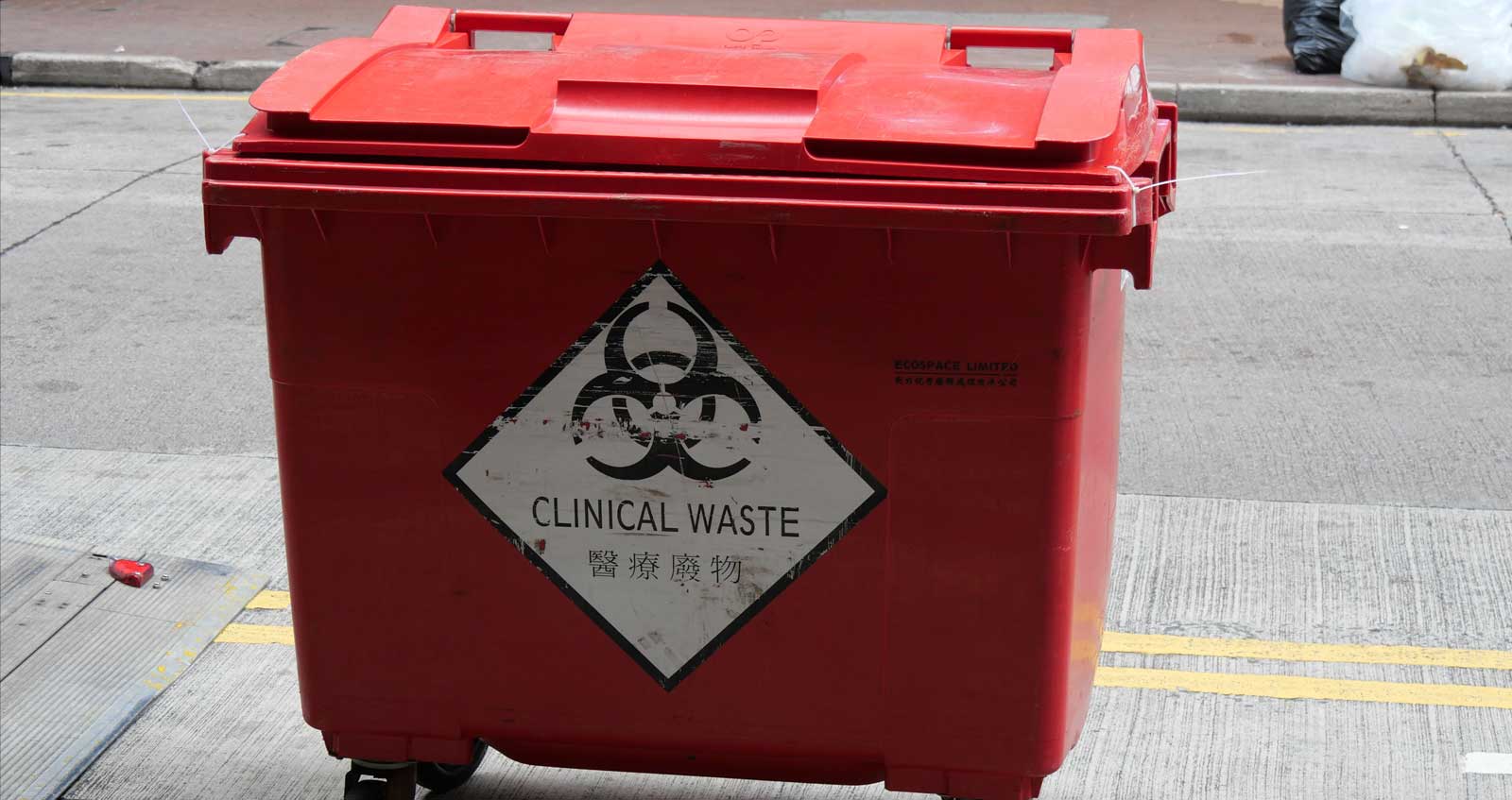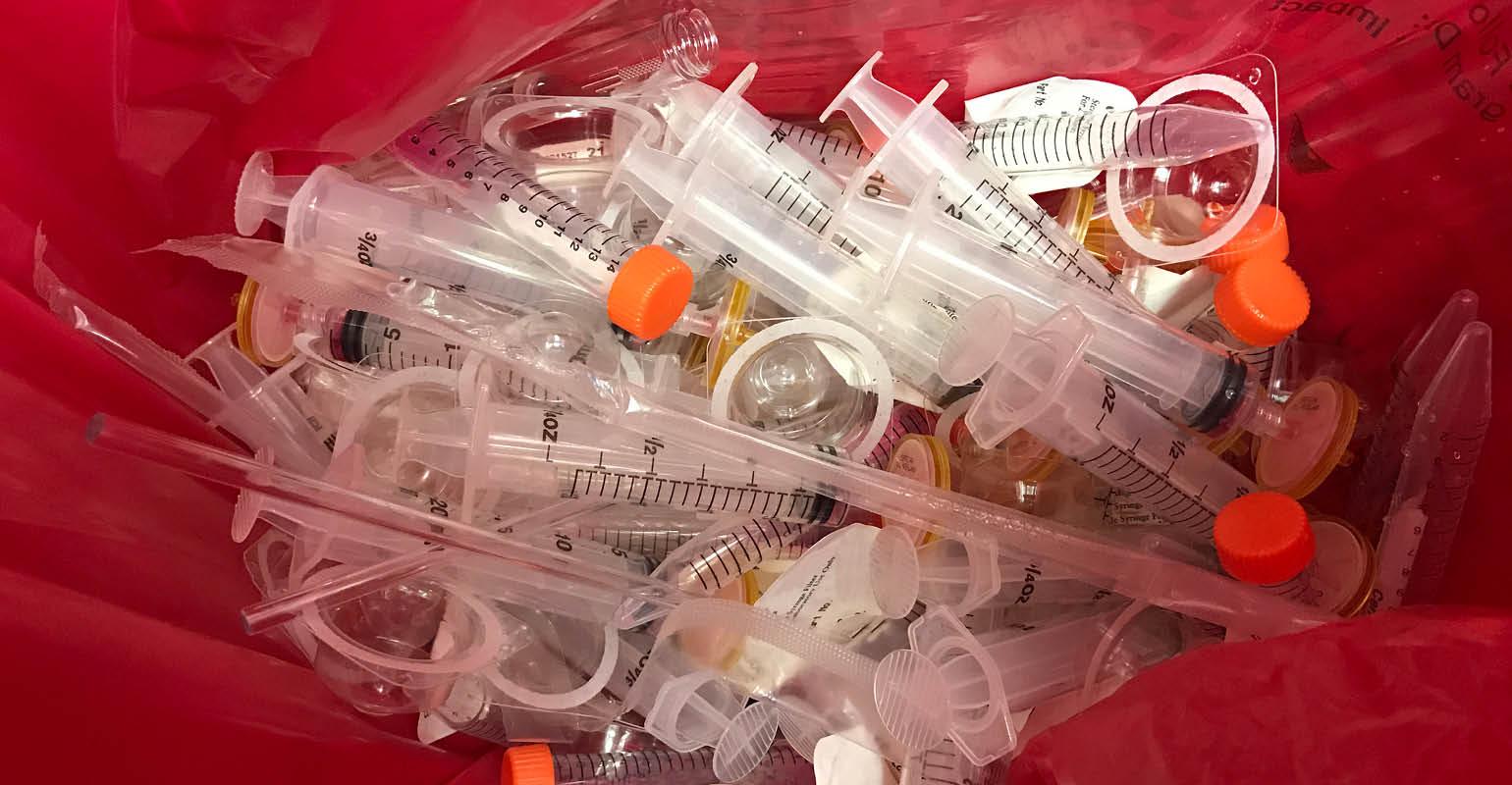Medical Waste Removal Quality: Elevating Safety And Security Requirements in Your Center
Wiki Article
The Importance of Correct Medical Waste Disposal: An Overview for Health Care Facilities
Proper medical garbage disposal is a critical facet of medical care facility monitoring, making certain the safety and security and wellness of clients, staff, and the setting. From recognizing the different categories of clinical waste to adhering to governing requirements, healthcare centers must adopt reliable waste segregation techniques and select proper disposal techniques. The value of proper medical waste disposal goes past simple conformity; it is an obligation that calls for ongoing training and education and learning for staff. In this guide, we will certainly check out the different facets of medical garbage disposal and highlight the necessary actions that healthcare centers should take. By executing these techniques, healthcare facilities can alleviate threats, safeguard public health and wellness, and add to a cleaner, more secure atmosphere.Understanding Medical Waste Categories
Understanding medical waste categories is important for proper disposal in health care facilities. Medical waste is a wide term that includes different kinds of waste generated in healthcare setups, such as labs, clinics, and hospitals. Categorizing clinical waste aids make sure that it is handled, stored, and disposed of securely and according to applicable regulations.There are numerous classifications of clinical waste that healthcare centers need to be knowledgeable about. These groups consist of infectious waste, sharps waste, pharmaceutical waste, chemical waste, and contaminated waste (medical waste disposal services with WasteX). Each classification has details characteristics and requires various disposal methods to reduce the danger of injury to healthcare workers, individuals, and the setting
Infectious waste, for example, describes lose infected with possibly transmittable products, such as blood, body liquids, and tissues. Sharps waste includes needles, syringes, and other sharp objects that can create injury or transmit infections. Pharmaceutical waste includes expired or extra medicines, while chemical waste contains harmful chemicals used in medical procedures. Lastly, radioactive waste includes materials contaminated with contaminated substances, such as nuclear medicine products.
Compliance With Regulatory Needs
Healthcare centers should make sure compliance with regulatory needs for appropriate medical waste disposal. Governing bodies, such as the Epa (EPA) and the Occupational Safety and Wellness Administration (OSHA), have developed guidelines and guidelines to protect public wellness and the environment. These regulations lay out the appropriate handling, storage, transportation, and disposal of medical waste.Conformity with regulatory demands is important for healthcare facilities to stay clear of legal penalties, reputational damage, and possible injury to human wellness and the environment. Failing to comply with these laws can lead to penalties, suits, and also the suspension or abrogation of operating licenses.
To make sure conformity, healthcare centers should develop thorough waste administration programs that consist of staff training, appropriate waste partition, and using ideal containers and labels. Regular audits and examinations ought to likewise be carried out to identify any type of non-compliance concerns and resolve them promptly.
It is crucial for healthcare facilities to stay up to date with adjustments in laws and update their waste management methods accordingly. This can be achieved by actively checking updates from regulatory bodies and taking part in training programs and workshops.
Implementing Effective Waste Segregation Practices
To guarantee appropriate clinical garbage disposal, medical care centers should carry out reliable waste partition methods. Waste partition is a crucial action in the total waste management process, as it helps reduce the threat of infection, prevents cross-contamination, and ensures the safe disposal of various sorts of waste. Reliable waste partition techniques involve dividing clinical waste right into various groups based upon its attributes and potential hazards.One common technique is the partition of sharps waste, such as needles and scalpels, from other sorts of clinical waste. Sharps waste must be positioned in puncture-resistant containers to stop injuries and possible infections. In addition, contaminated materials, such as drugs and chemicals, must be separated from general clinical waste to stop ecological contamination.
Correct labeling and color-coding of waste containers are crucial for efficient waste segregation. Visible and clear tags ought to be positioned on each container to indicate the sort of waste it consists of and any type of special delivery requirements - medical waste disposal services with WasteX. Additionally, color-coding can be made use of to distinguish in between various waste classifications, making it simpler for medical care team to dispose and identify of waste properly
explanation Normal training and education for medical care staff is essential for the effective implementation of waste segregation methods. Personnel must be enlightened on the various waste categories, appropriate partition methods, and the relevance of following waste administration procedures. This will certainly assist guarantee compliance and uniformity in waste partition practices throughout the center.
Finding Appropriate Disposal Approaches
Correct selection of suitable disposal methods is vital in ensuring the ecologically responsible and safe administration of clinical waste in medical care centers. Medical care centers generate a variety of clinical waste, including sharps, transmittable waste, pharmaceutical waste, and chemical waste - medical waste removal near me. Each sort of waste calls for details disposal approaches to minimize the risk of contamination, injury, and ecological harmOne usual disposal technique for medical waste is incineration. Incineration involves the regulated burning of waste at high temperature levels.

Chemical sanitation is another technique you could look here made use of for sure kinds of clinical waste, such as pharmaceutical waste. This approach utilizes chemicals to neutralize or damage contaminants. It is important to select chemicals that are secure and ecologically friendly.
In some situations, land fill disposal might appropriate for non-hazardous clinical waste (medical waste disposal services with WasteX). Nevertheless, proper partition and product packaging are critical to stop leakage or contamination.
Inevitably, health care centers need to very carefully examine the qualities of their clinical waste and pick proper disposal methods that focus on safety, ecological security, and regulatory compliance. Routine training and surveillance are vital to guarantee that healthcare staff adheres to proper disposal methods.

Training and Educating Staff on Proper Disposal Treatments
Staff education and learning and training play a critical function in guaranteeing the correct disposal of medical waste in medical care centers. It is vital that all personnel, including medical professionals, nurses, professionals, and support staff, obtain thorough training on appropriate disposal treatments. This training needs to cover the various kinds of medical waste, their prospective risks, and the appropriate techniques for taking care of, segregating, and dealing with them.Among the primary goals of personnel education and training is to make sure that all healthcare professionals comprehend the importance of correct disposal treatments and the potential repercussions of inappropriate waste administration. They require to be mindful of the risks related to clinical waste, such as the transmission of infections and the contamination of the environment. medical waste removal services. By recognizing these risks, employee will certainly be more motivated to comply with appropriate disposal procedures and take the essential preventative measures to safeguard themselves, their associates, and the neighborhood
Training need to also cover making use of personal protective equipment (PPE) and the correct strategies for taking care of clinical waste. Employee ought to be educated on Continue just how to recognize and set apart various sorts of waste, such as sharps, contagious waste, and hazardous chemicals. They ought to also be educated on the correct use waste containers, such as sharps containers and biohazard bags, in addition to the value of labeling and sealing these containers correctly.
In addition, team education and learning and training must include normal updates and correspondence course to guarantee that healthcare experts stay educated concerning the most recent laws and ideal methods in medical garbage disposal. This recurring education is vital to preserve a high degree of recognition and conformity among personnel.
Verdict
In conclusion, correct medical waste disposal is of utmost significance for medical care facilities. Recognizing the various groups of medical waste and abiding with regulative needs ensures the safety and wellness of both healthcare workers and the general public.From comprehending the various categories of clinical waste to conforming with regulatory requirements, medical care facilities should adopt efficient waste partition practices and select suitable disposal approaches. These categories include transmittable waste, sharps waste, pharmaceutical waste, chemical waste, and radioactive waste.To make certain proper medical waste disposal, health care facilities have to execute efficient waste partition practices. Waste partition is a critical step in the general waste monitoring process, as it assists decrease the threat of infection, stops cross-contamination, and ensures the safe disposal of different types of waste. Medical care facilities generate a range of medical waste, including sharps, transmittable waste, pharmaceutical waste, and chemical waste.
Report this wiki page